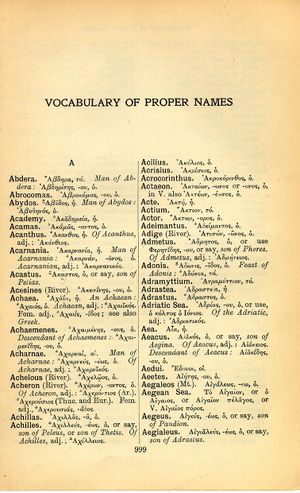Acesines
From LSJ
English > Greek (Woodhouse)
(River) Ἀκεσίνης, -ου, ὁ.
Latin > English (Lewis & Short)
Ăcĕsĭnēs: ae, m., = Ἀκεσίνης,
I a river in India, which falls into the Indus, now the Chenaub, Curt. 9, 3, 20; Mel. 3, 7, 6; Plin. 6, 20, 23 al.
Latin > French (Gaffiot 2016)
Ăcĕsīnēs,¹⁴ is, m., fleuve de l’Inde : Curt. 9, 4, 8, etc.
Latin > German (Georges)
Acesīnēs, is, m. (Ἀκεσίνης), ein Fluß in Indien, der auf seinem rechten Ufer den Hydaspes, auf seinem linken aber den Hydraotes in sich aufnimmt und dann als bedeutender Strom in den Indus mündet, j. Dschenab od. Tschenaub, Curt. 8, 9 (30), 8 u.a. Iustin. 12, 9, 1. – Nbf. Acesīnus, ī, m., Plin. 6, 71 u. 37, 200. Mela 3. § 69 Frick (Parthey Agasinus). – Nbf. Agēsīnes, is, m., Oros. 3, 19, 6.

